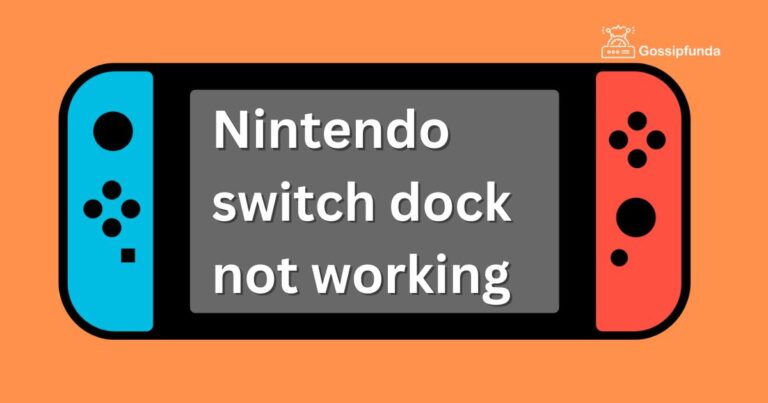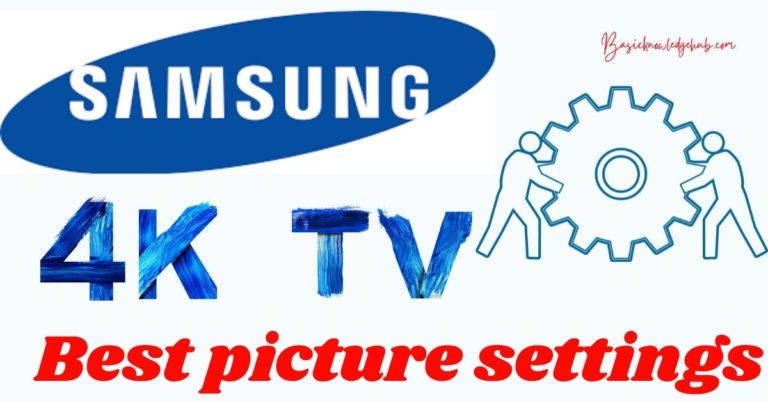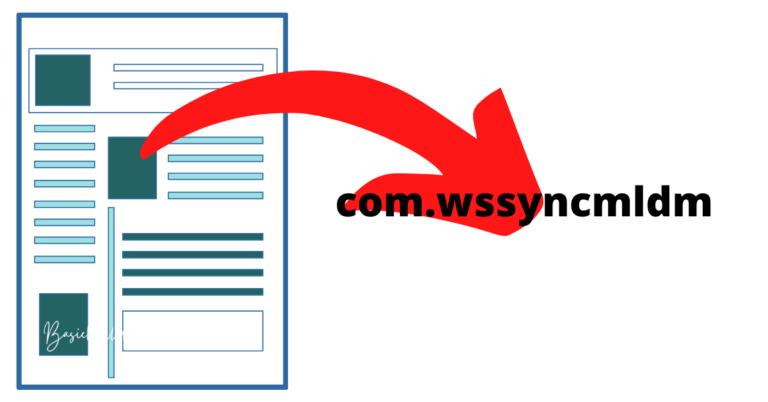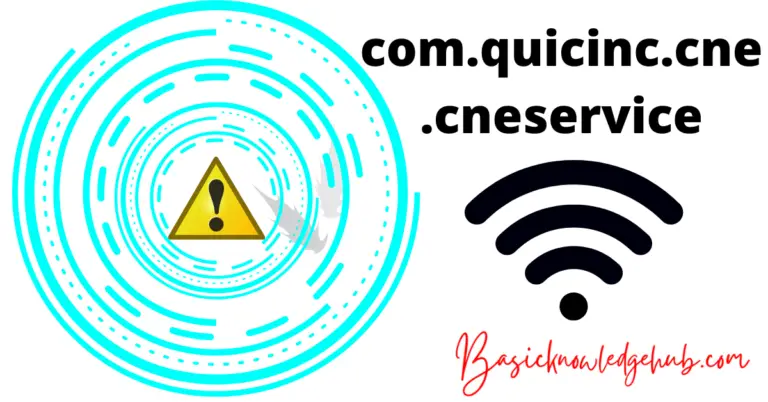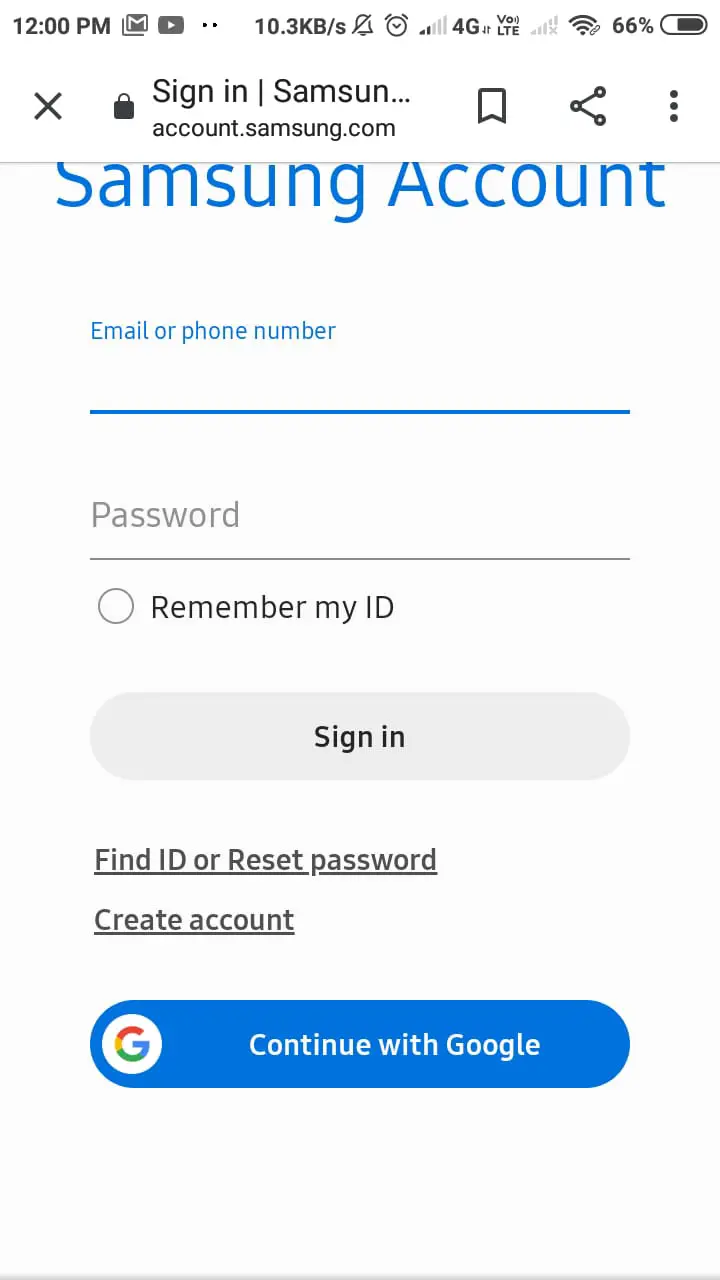Plex something went wrong an unexpected error occurred
Plex is a popular media server software that allows users to organize and stream their digital media collections. It’s essentially a platform where users can access their music, movies, TV shows, photos, and more from one place. Available on a multitude of devices, Plex can be used both locally and remotely, providing a unified interface and a seamless media experience.

Also read: Is Taco Bell App not working? Let’s fix it in seconds!!
Common uses and benefits of Plex
- Streaming personal media: Plex is commonly used to stream personal media collections. This includes music, movies, TV shows, photos, and more.
- Remote access: One of the main benefits of Plex is the ability to access your media remotely. This means you can access your media from anywhere in the world, as long as you have an internet connection.
- Sharing with friends and family: Plex also allows users to share their media libraries with friends and family, providing a personalized streaming service.
- Organized Media: Plex automatically categorizes your media and downloads relevant information such as synopses, reviews, and cover art.
- Compatibility: Plex is compatible with a wide range of devices, including smartphones, tablets, smart TVs, and game consoles, among others.
Overview of the “Unexpected Error Occurred” issue
The “Unexpected Error Occurred” is a common problem that Plex users encounter. This error message usually appears when there’s a problem with the server, network, or client application, but it can also be a result of software bugs. Troubleshooting this error can be challenging due to its generic nature, but there are several strategies users can employ to identify and fix the underlying problem, which we’ll delve into throughout this guide.
Understanding Plex Architecture
Client-server model
The Plex system operates on a client-server model. The Plex Media Server is the backbone of the Plex system. It’s responsible for storing and managing your media libraries, and also for transcoding media files for playback on different devices. On the other end, Plex clients are the applications that you use to access and play your content stored on the Plex Media Server. Clients can be web browsers, dedicated apps on your Smart TVs, gaming consoles, smartphones, or tablets.
Impact of architecture on error troubleshooting
Understanding Plex’s client-server architecture is crucial to troubleshooting errors like the “Unexpected Error Occurred”. Since Plex relies on this architecture, an issue could arise from the server, the client, or the network that connects them. Identifying which part of the system is causing the problem can significantly narrow down the troubleshooting steps. In some cases, the issue may involve multiple parts of the system, making it more complex to resolve. Thus, a grasp of the underlying architecture can significantly facilitate the error troubleshooting process.
Common Plex Error Messages
“Plex Something Went Wrong”
This is a fairly generic error message that can be triggered by a wide range of issues, such as server connection problems, software bugs, or issues with the Plex client application. It’s essentially a catch-all phrase that indicates that something didn’t work as expected, but doesn’t provide specific details about the underlying problem.
“An Unexpected Error Occurred“
This is another common but generic error message in Plex. Like the “Something Went Wrong” message, it’s typically displayed when the server encounters an issue that it can’t identify or resolve on its own. This error could also stem from a variety of causes, including network issues, problems with the Plex Media Server, or software bugs.
Other common errors
Apart from the above, Plex users might encounter several other error messages such as:
- “Unable to connect to the content server“: This typically indicates a network or server-related problem.
- “There was a problem playing this item“: This error generally occurs when Plex is unable to play a particular media file, often due to issues with the file’s format, compatibility, or location.
- “Server is not powerful enough to convert video“: This error message suggests that the Plex Media Server’s hardware can’t handle the transcoding process.
- “No compatible streams are currently available“: This often indicates an issue with the media file itself, like corruption or unsupported formats. Understanding these common errors can provide a starting point for troubleshooting and solving issues with Plex.
Investigating Plex Errors
Importance of Error Investigation
Investigating Plex errors is crucial to restore your streaming experience and prevent future interruptions. The generic nature of many Plex errors, such as “Plex Something Went Wrong” or “An Unexpected Error Occurred,” makes it necessary to investigate and pinpoint the exact cause of the problem. Thorough investigation allows for targeted troubleshooting and can provide insights into how to avoid similar issues in the future.
Initial Checks and Preliminary Diagnostics
Before diving into complex troubleshooting procedures, it’s important to carry out initial checks and preliminary diagnostics:
- Server Status Check: Ensure the Plex server is up and running and that there aren’t any ongoing issues with it.
- Network Connection: Verify that both the server and client have stable, active network connections.
- Plex Client Check: Make sure the Plex client is up-to-date and running without issues. If necessary, try accessing Plex from a different client to see if the problem is client-specific.
- Error Message Analysis: Even though many Plex error messages are generic, they can still give some clues about where to start your troubleshooting.
- Media File Check: If the error occurs with a specific file or files, check to ensure those media files aren’t corrupt or in an unsupported format.
- Log Review: Plex maintains logs of its activities, which can often provide valuable insights into what might be causing the problem.
These initial checks can help identify whether the problem is related to the network, server, client, or the media files themselves.
FIX: Plex something went wrong an unexpected error occurred
Fix 1: Checking and Resetting Network Connection
Network issues are one of the common culprits behind the “Unexpected Error Occurred” message in Plex. Here are detailed steps to troubleshoot and fix potential network issues:
- Confirm Active Internet Connection: Ensure that your internet connection is active. You can do this by trying to access a webpage or use an online service. If the internet is not working, you may need to reset your router or contact your internet service provider.
- Check Server’s Network Connection: If your internet is fine, the next step is to ensure that your Plex Media Server has access to the network. If your server is on a separate machine or device, try to browse the internet from that device.
- Restart Network Equipment: Sometimes, network equipment such as your modem or router can cause problems. Try restarting these devices and see if that resolves the issue. Unplug the power source, wait for about 30 seconds, and then plug it back in.
- Verify Server’s Connectivity: Make sure the server machine is properly connected to your network. You can do this by pinging other devices on the same network or attempting to access shared files.
- Check Client’s Network Connection: Similarly, verify the network connection on your client device. If possible, try using a different device to access your Plex server to see if the problem persists.
- Disable VPN or Proxy: If you’re using a VPN or proxy, try disabling it temporarily. These services can sometimes interfere with Plex’s ability to connect to the server.
- Check Firewall Settings: Make sure your firewall settings are not blocking Plex. You may need to add Plex as an exception in your firewall settings.
- Update Network Drivers: If you’re running Plex on a PC, outdated network drivers might cause connectivity issues. Make sure your network drivers are up to date.
Remember, the exact steps might vary depending on your network setup and the devices you’re using. After each step, try accessing Plex again to see if the problem is resolved. If you’re still encountering the error, it’s time to investigate other potential causes.
Fix 2: Verifying and Restarting Plex Media Server
Problems with the Plex Media Server can also lead to the “Unexpected Error Occurred” message. Here’s how you can troubleshoot and fix potential server issues:
- Check Server Status: First, confirm that your Plex Media Server is running. If your server is on a computer, check to see if the Plex Media Server application is active. If you’re using a NAS or other dedicated server device, make sure the device is powered on and functioning correctly.
- Restart Plex Media Server: Restarting the Plex Media Server can often fix temporary issues. On a computer, you can do this by closing the server application and then relaunching it. For a NAS or other device, you may need to restart the entire device.
- Update Plex Media Server: Make sure you’re running the latest version of Plex Media Server. Plex frequently releases updates to fix bugs and improve performance, and running an outdated version can lead to problems. Check the Plex website or your server device’s app store to find updates.
- Check Server Settings: Review the Plex Media Server settings to ensure they’re correctly configured. Pay special attention to the network and remote access settings, as misconfigurations here can cause connectivity problems.
- Inspect Server Logs: Plex Media Server maintains detailed logs that can provide insights into what’s causing your problem. You can access these logs from the server settings. Look for any errors or warnings that occurred around the same time as your “Unexpected Error Occurred” message.
- Reinstall Plex Media Server: If none of the above steps resolve the issue, you may need to reinstall Plex Media Server. Be sure to back up any important data before doing this, as the process will delete your server settings and metadata.
After performing these steps, try accessing Plex again to see if your problem is resolved. If not, continue troubleshooting with other potential fixes.
Fix 3: Troubleshooting Client-Side Issues
If the “Unexpected Error Occurred” error persists after checking network and server issues, it may be time to look into potential problems with the Plex client. Follow these steps to diagnose and address client-side issues:
- Update Plex Client: First, make sure your Plex client application is up to date. An outdated client can cause compatibility issues with the Plex server, leading to errors. Check for updates in your device’s app store or on the Plex website.
- Restart Plex Client: Just like the server, temporary issues with the client can often be fixed by a simple restart. Close and reopen the Plex app, or restart your device to ensure a clean slate.
- Clear Client Cache: Over time, the client can accumulate temporary files and data that may interfere with its operation. Clearing the cache can often help resolve these issues. The steps to do this depend on your device and may involve navigating through the app’s settings or using your device’s storage settings.
- Try a Different Client: If possible, try using a different client device to access your Plex server. If the error doesn’t occur on the second device, the problem is likely specific to your original client.
- Reinstall Plex Client: If all else fails, consider reinstalling the Plex client application. This should be your last resort, as it will erase your client settings and may require you to re-authenticate with the Plex server. Remember to back up any important data before proceeding with this step.
After completing these steps, try to access Plex again. If the problem persists, there could be deeper issues, such as software bugs or hardware problems with your server.
Fix 4: Addressing Potential Software Bugs
In some cases, the “Unexpected Error Occurred” error might be due to software bugs within the Plex Media Server or the Plex client app. Here are the steps you can take to handle potential software bugs:
- Update Plex Software: Ensure both your Plex Media Server and client apps are updated to the latest versions. Developers regularly release updates to fix known bugs and improve performance. You can find updates on the Plex website or your device’s app store.
- Check Plex Support and Forums: Plex has an active online community, and their support forums can be a wealth of information. Search for your error message or describe your problem to see if other users have experienced similar issues and found solutions.
- Submit a Bug Report: If you’re experiencing a new or unresolved bug, consider submitting a bug report to Plex. Make sure to provide as much detail as possible, including what you were doing when the error occurred, the exact wording of the error message, and any steps you’ve taken to troubleshoot the problem. This can help the developers identify and fix the issue.
- Temporarily Downgrade Plex Version: If your problem started after a recent Plex update, it could be due to a bug introduced in that update. In this case, you might consider temporarily downgrading to an earlier version of Plex. Be aware that this can introduce other problems and should only be done as a last resort.
- Wait for a Patch: Sometimes, the best solution is to wait for a patch. If you’ve identified a bug and reported it to Plex, the developers will often release a fix in a future update. Keep an eye on the release notes for these updates to see when your issue is addressed.
Remember, software bugs can be complex and may take time to resolve. Patience and communication with the Plex community and support team can go a long way towards finding a solution.
Fix 5: Troubleshooting Media File Issues
If the “Unexpected Error Occurred” message arises when trying to play specific media files, the issue may lie with the files themselves. Here are some steps to handle potential media file issues:
- Verify File Compatibility: Check to see if the file format is compatible with Plex. Plex supports a wide range of media file formats, but there are still some it cannot play. You can find a list of supported file formats on the Plex website.
- Inspect File Integrity: Make sure the media files are not corrupted. You can do this by attempting to play the files in a different media player. If the files won’t play or display errors in another player, they may be damaged or incomplete.
- Check File Permissions: Ensure Plex has the necessary permissions to access and read the media files. If the files are on a different computer or network storage, you may need to adjust the sharing settings for those files or directories.
- Assess Storage Device Health: If your media files are stored on an external hard drive, NAS, or another type of storage device, make sure that device is functioning correctly. Try accessing other files on the same device to see if there are any broader issues.
- Transcode Media Files: If you’re having trouble playing certain types of media files, you might consider transcoding them into a different format. Plex has built-in transcoding features, but you can also use external tools for this. Note that transcoding requires a lot of processing power and can be slow on less powerful servers.
- Re-download or Re-rip Media Files: If certain media files continue to pose problems and the aforementioned steps don’t resolve the issue, consider re-downloading or re-ripping them. Sometimes, a fresh copy of the media file resolves the issue.
By following these steps, you can identify and resolve most media file issues that might be causing the “Unexpected Error Occurred” message in Plex.
Fix 6: Verifying and Updating System Requirements
At times, the “Unexpected Error Occurred” error can be a result of outdated or incompatible hardware. It’s crucial to verify and update system requirements, ensuring your server’s hardware can support Plex Media Server effectively. Here are steps to consider:
- Check System Specifications: Make sure your server device meets the minimum system requirements for running Plex Media Server. This includes checking the processor, memory, and storage. You can find the minimum and recommended system requirements on the Plex website.
- Ensure Adequate Storage: Plex requires adequate storage space for its operation, including storing metadata, subtitles, and temporary transcoding data. If your server device is running low on storage space, it may result in errors. Try clearing up some space by deleting unneeded files.
- Upgrade Hardware: If your server device doesn’t meet the recommended system requirements, it may struggle to run Plex Media Server, especially when transcoding high-resolution media files. Consider upgrading your hardware if necessary.
- Inspect for Hardware Issues: Hardware problems, like a failing hard drive or memory module, can lead to unexpected errors. Use your operating system’s built-in tools to check for hardware problems, or consider getting professional assistance.
- Update System Software: Ensure your server device’s operating system and other key software are up to date. Outdated software can lead to compatibility issues and other problems.
By verifying and updating your system requirements, you can ensure a smooth operation for Plex Media Server, minimizing the chances of encountering the “Unexpected Error Occurred” error.
Fix 7: Modifying Server Settings
Certain server settings could lead to the “Unexpected Error Occurred” error. Modifying these settings could potentially resolve the issue. Here are steps to consider:
- Check Remote Access Settings: If you’re having trouble accessing Plex from a different network, make sure the server’s remote access settings are properly configured. Plex should automatically set up remote access, but you may need to configure port forwarding manually in some cases.
- Adjust Transcoder Quality: The Plex transcoder converts your media files into a format that your client device can play. If the transcoder is set to a high quality level, it may overload your server and lead to errors. Try reducing the transcoder quality level in the Plex Media Server settings.
- Change Streaming Quality: Similar to the transcoder quality, if your streaming quality is set too high, it may cause problems, especially on slower network connections. Try lowering the streaming quality in the client app’s settings.
- Disable Hardware Acceleration: While hardware acceleration can improve performance in some cases, it can also cause issues with certain hardware configurations. If you’re experiencing problems, try disabling hardware acceleration in the Plex Media Server settings.
- Review Network Settings: Ensure the server’s network settings are properly configured. This includes settings for both the local network and remote access.
After performing these steps, try accessing Plex again to see if the issue has been resolved. If not, it’s time to explore other potential causes. Remember that every server and network setup is unique, so you may need to try different combinations of settings to find what works best for your situation.
Fix 8: Testing for Plugin Issues
While Plex has deprecated plugins since version 1.16, if you’re running an older version, it’s possible that plugin issues could be causing the “Unexpected Error Occurred” error. Here are steps to diagnose and resolve plugin-related problems:
- Identify Problematic Plugins: If you have multiple plugins installed, try to identify which one is causing the issue. You can do this by disabling your plugins one at a time and seeing if the error persists.
- Update Plugins: Make sure all your plugins are up-to-date. Developers often release updates to fix bugs and improve compatibility, so updating your plugins might resolve the issue.
- Reinstall Plugins: If updating doesn’t fix the problem, try uninstalling and reinstalling the problematic plugin. This can often resolve issues caused by corrupted or incomplete plugin installations.
- Check Plugin Compatibility: Ensure that the plugins are compatible with your version of Plex Media Server. If a plugin is designed for a different version, it may not work properly and could cause errors.
- Contact Plugin Developer: If a specific plugin is causing issues and you can’t resolve them yourself, consider reaching out to the plugin’s developer or support community. They may be able to provide specific advice or fixes.
- Disable All Plugins: If all else fails, consider disabling all plugins to see if that resolves your issue. While plugins can add useful features to Plex, they can also introduce complexity and potential problems.
Keep in mind that Plex has phased out support for plugins, so if you’re using a newer version of Plex Media Server, this section may not apply to you. In general, it’s recommended to use
Prevention and Future Guidance
Understanding how to prevent future occurrences of the “Unexpected Error Occurred” error and maintaining the Plex system optimally is crucial. This section covers these preventive measures and best practices:
Best Practices to Prevent Future Errors
- Regular System Checks: Carry out routine checks on your server’s hardware and software to ensure they’re in good working condition.
- Use Supported Formats: Stick to media file formats that are known to be compatible with Plex.
- Avoid Overloading Server: Try not to overload your Plex server with too many simultaneous streams or transcodes.
Ongoing Maintenance of Plex Systems
- Keep Your Server Clean: Regularly clear out temporary files and old data from your server to ensure smooth operation.
- Consistent Check on Storage Devices: Keep an eye on the health of your storage devices to avoid data loss or corruption.
- Routine Reboots: Routine restarts of your Plex Media Server can help keep it running smoothly by clearing out temporary data and ensuring any updates get properly applied.
Importance of Keeping Plex Software Up-to-Date
- Regular Updates: Always ensure your Plex Media Server and client apps are updated to the latest versions. This will help you get the latest features and bug fixes.
- Staying Informed: Keep an eye on the Plex website or subscribe to updates to stay informed about any known issues or upcoming changes.
- Community Engagement: Participate in the Plex community for troubleshooting help, tips on server management, and staying up-to-date on the latest news and updates.
Following these best practices will not only help you prevent the “Unexpected Error Occurred” error from occurring again but also ensure a smooth and enjoyable Plex experience.
Conclusion
Adeptly troubleshooting and preventing Plex’s “Unexpected Error Occurred” enhances your media streaming experience, driving flawless entertainment sessions. Equipped with these remedies, you’re ready to tackle any Plex hiccup that comes your way. Keep your Plex server up-to-date, monitor system health, and maintain optimal settings. By doing so, you’ll significantly reduce the likelihood of facing errors, ensuring your multimedia enjoyment remains uninterrupted. Rest assured, these proactive measures and effective fixes serve as your indispensable toolkit for a smooth Plex experience. Enjoy your seamless media streaming journey!
FAQ
A: Seek help from the Plex community forums. There, experts and experienced users provide insightful troubleshooting advice.
A: Yes, it’s recommended. Updates often include bug fixes, feature enhancements, and improved security measures.
A: Absolutely. Check file compatibility, integrity, and permissions. Sometimes, re-downloading or re-ripping the files helps.
A: Yes. Hardware problems, like a failing hard drive or inadequate system requirements, can lead to such errors.
A: Regular updates, routine server checks, and using supported formats are some of the best practices to prevent future errors.
